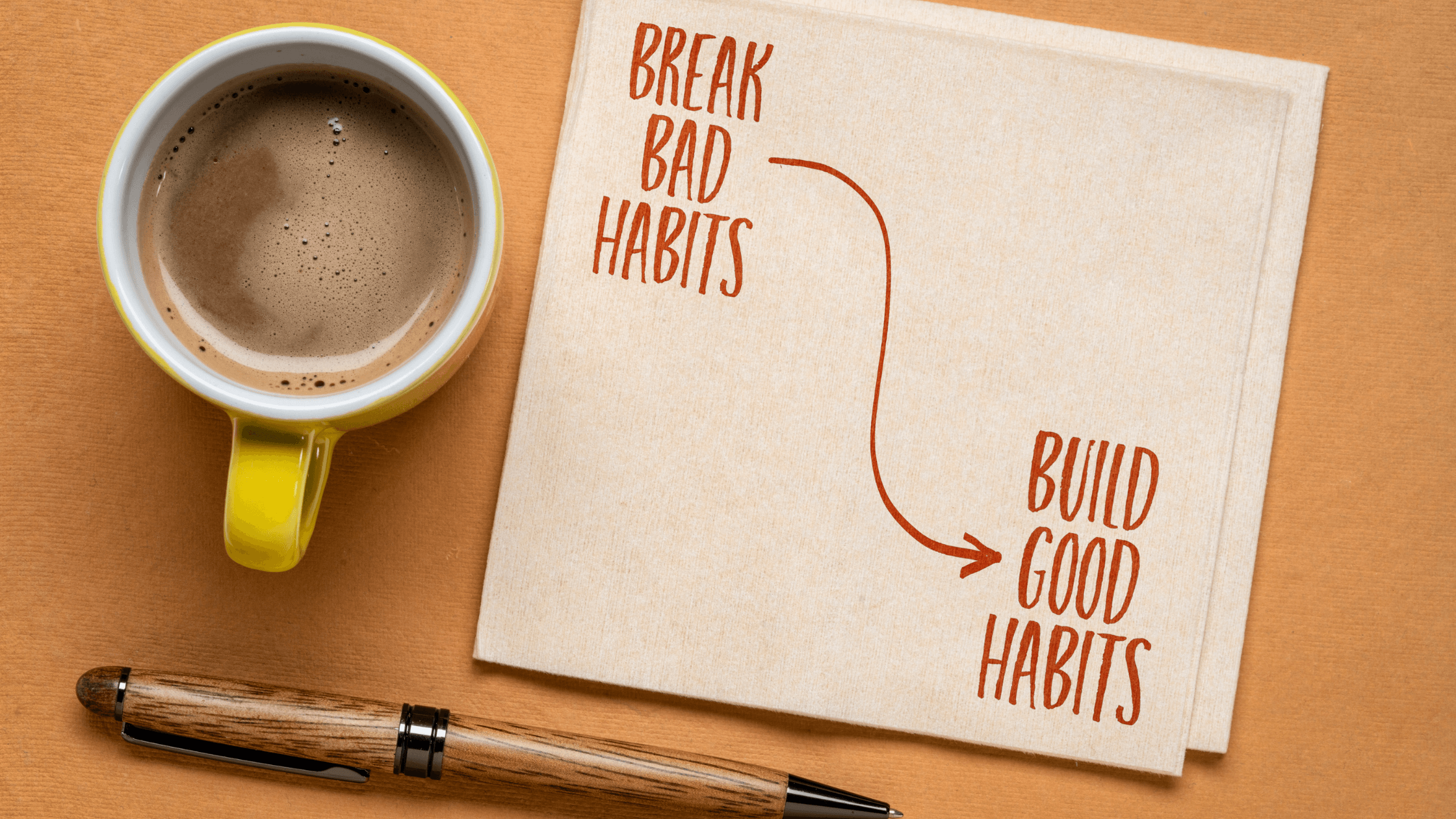After “intending” to develop a meditation practice for years, I finally took the plunge and started a 17-week program.
The commitment? It’s intense.
They demand (at least) an hour of meditation a day, every single day.
That’s a lot for anyone.
But when you have a business to run? It’s downright unthinkable.
But yet, we all know that what got us to where we are today isn’t going to get you to the next level.
Just like you, I have huge vision for what I’m creating, and I want to make sure I’m up to making it happen. And here’s the thing: the sky’s never actually the limit — the only real limit is… well… you.
Anyway, back to my story…
The course is great. I’ve actually been able to stick to the schedule of meditating for an hour a day. And we’ve been learning about positive psychology so we can understand the science behind the practices.
Our instructor, Dr. Jeffery Martin introduced us to a happy little idea of Hedonic Adaptation or the strong tendency we have as humans to return to a baseline level of happiness that’s .. get this … largely genetic.
This is the mechanism that explains why someone who wins the lottery ends up slightly less happy than they were before they won — about six months later.
It’s why the story “once I have _____, I’ll be happy,” never really comes to pass.
And that new house, that new partner, that new promotion only really spikes your internal happiness meter for a few months, before flatlining back to where you started.
It’s like we can’t get away from — well — ourselves.
I know so many really successful people who find themselves unsatisfiable as they start to take their success and their good fortune for granted. The beautiful house, beautiful food and beautiful opportunities no longer please them like it used to. And all of a sudden small problems end up feeling like a big deal.
That’s the origin of the “high class problems” meme of the rich white woman crying over the smallest thing… we laugh but it’s human nature to habituate back to our baseline level of genetic happiness, so when our lives are so good, it’s like we have to grasp at petty little things to bring us back down. We start to create drama, conflict and dissatisfaction where there is none.
Biology is just a bitch sometimes.
A lot of things that we think will make us happy and make a huge difference in our lives, don’t actually affect our baseline happiness…
(Yes, the job, the house, the partner, the bank account, the house with the white picket fence — none of that will make you happy.)
All of that stuff becomes hedonically habituated after a time. It becomes your “new normal.” And after a while, it doesn’t produce the same increased happiness and gratitude that it used to.
Luckily, there are a couple practices that can raise your baseline level of happiness over time… you don’t have to be doomed by your genetics.
And, believe it or not, positive psychology has shown that the most effective practice to avoid hedonic adaptation and recondition the brain for greater levels of happiness is…
Gratitude.
Actually taking the time each day — or each week — to realize that there are all kinds of things that you have to be happy for breaks the pattern of hedonic habituation and forces the brain to reexamine things.
If you can constantly remind yourself of the specific things that make you a very fortunate person and change that list on a regular basis — so you don’t habituate to the list — you can start to recondition yourself for greater levels of happiness.
Dr. Jeffery gave me two specific practices to do this that I’d like to share with you…
Prospective Gratitude and Retrospective Gratitude.
Prospective Gratitude is basically gratitude in advance. This is a morning practice that you can do at the beginning of a day or the beginning of a week. If you do this daily, you can work with a shorter list. Just think of a few specific things that you have to be grateful for that day. Bring each thing to mind for a moment and feel as much gratitude as you possibly can for those things. Thing of something that’s been routine for a long time that you don’t remember to be grateful for — because you’ve become used to it, it’s become hedonically habituated — and think of something new…
You want to change your list each day so it stays fresh. If you’re doing this weekly, you don’t have to worry about that quite so much.Then Retroactive Gratitude is gratitude after the fact. Gratitude at the end of the day or the end of the week. Taking time to call up some things that you’re grateful for that actually happened and feel as much gratitude as possible for them.
I practiced my first morning of Prospective Gratitude yesterday and it completely changed my day.
I’m here in Australia with my husband Murray. It’s my first time in his hometown of Brisbane and I expressed gratitude for the day of exploring we had planned. We had planned to have Sunday brunch in the Botanical Gardens, then go to the Lone Pine Kaola Sanctuary to snuggle with some animals, then up to the lookout on top of Mt. Coot-tha, then lunch down in Latrobe Terrace.
So I took a moment to anticipate this amazing day and I grew more excited about it. A day that I may have enjoyed but taken for granted, it became something magical and extraordinary.
And when I took a moment to give gratitude in advance for having the freedom to run my business from the road — to work where I want, when I want, with whom I want, for as long as I want — I remembered to appreciate that.
We’re biologically conditioned to take our lives for granted and we have to do remember to be happy. For most people, it’s not something that happens naturally.
So, tell me, what are you grateful for?
Love it? Hate it? Let me know...
-
Hi Marisa ..
Now I’m grateful for the great luck I’had : love learning, learned Enlish, and can read that article of yours 🙂
-
Sounds like your English is pretty solid to read this whole post Malika! 🙂
-
-
Hi Marisa,
you are wonderful. I am very thankful to read your posts and to feel there are people out there, who share my interests and have similar thoughts.-
Awww. Thanks Jessica! You sound pretty wonderful yourself… <3
-
-
Hello Marisa,
Yes, happiness is something we create inside ourself, it is nothing someone else or a thing can give us. It is a choice. I have gone through hard things in my life but I choose to stay positive and everything became easier. Brisbane is nice, I almost moved there 15 years ago but instead moved to Perth and then Singapore. Now I am back in Sweden. I should have gone to Brisbane…-
I totally agree with you that happiness is a choice Tommy. I hope you find a way to love Sweden… xo
-
-
I am grateful that I have taken the step to become an entrepreneur and honor that spirit that has been alive in me since I was a child. I am grateful that my husband completely and totally supports me in my vision. I am grateful that I can take my kids to fun and interesting places and engage them and enriching experiences. I’m grateful for every client to walk through my door as they teach me so much about Humanity and about myself. I am grateful for the very painful 20 years that I spent with my ex-husband because I could not have grown to be the person I am today without those lessons.
Many blessings and I hope that your trip continue to be amazing!
-
Great list Michelle. Keep it coming! And congrats on getting to the point where you’ve learned the lessons you need to honor that childhood spirit of yours. xo
-
-
I am grateful for my experience in EPM and all the wonderful people I have connected with who are helping me give life to my business venture. What was once holding me back is no longer a reality in my life because being thankful for the ups and downs in my journey is what makes gratitude possible.
-
Totally. Without the downs it’s hard to fully appreciate the ups. I’m grateful you’re in my world as a student…
-
-
Have been making a grateful list every morning for more than a year and am grateful for the quality it has added to my life.
-
That’s commitment Jim! What have you noticed is the difference since you started this practice?
-
-
Marisa,
What a great post! Gratitude is so important and plays an important role in my life. I love people like you and Oprah and others who are either well-known or not well-known who share their own experiences with gratitude. It is so uplifting. Your point is also well-made. Happiness does not depend on the things we have… unless we have that all-important gratitude key in place. Then any rainy day (metaphorically) can turn out to be a time of valuable learning.Wishing you the best!





























Leave a Comment